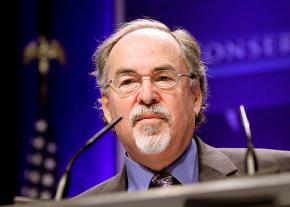Twisting the case for free speech on campus
Brooklyn College in New York City has become a main target of the David Horowitz Freedom Center, which is notorious for its rabid Islamophobia and drive to target leftists on college campuses for supposedly "collaborat[ing] with America's enemies abroad and criminals at home to bring America down," according to its website.
The campus has seen repeated cases of one of the Freedom Center's tried-and-true tactics: putting up posters to smear pro-Palestine professors and activists as "Hamas supporters" and "terrorists." According to the Southern Poverty Law Center, which tracks hate groups, the Freedom Center "has become the premier financier of anti-Muslim voices and radical ideologies, as well as acting as an exporter of misinformation that seeks to increase popular appeal for Horowitz's fears and phobias."
After the latest round of postering at Brooklyn College in early October, Professor Robert Cherry wrote an op-ed article for the Brooklyn College student paper The Kingsman that criticized the posters for making "indefensible charges," yet defended the Freedom Center and decried the supposed stifling of conservative ideas on college campuses.
SW contributor wrote a response to Cherry's article that appeared in The Kingsman that we are republishing here.
A RECENT op-ed by Professor Cherry criticized the David Horowitz Freedom Center's poster campaign on the Brooklyn College campus for dubbing faculty members terrorists. The posters also named students. However, the professor failed to condemn the exposure of students and deemed a previous poster appropriate for supposedly focusing on "Hamas supporters." And he misrepresented a contentious event on campus in which students exercised their right to free speech.
In 2016, nine students attended a Brooklyn College Faculty Council meeting with a list of demands. When former President Karen Gould opened the floor for comment, they stood and chanted them. They called for diversity of faculty (recently echoed by President Michelle Anderson), a return to free and open admissions, and an end to surveillance of students on campus. This last demand was in response to the discovery a year prior by several students that an undercover NYPD detective infiltrated them, posing as a Muslim convert. The administration had failed to condemn this violation of students' civil rights. Once the meeting of the Council adjourned apparently one student called the chair a "Zionist." The incident quickly spiraled into an accusation of anti-Semitism against multiple students. An investigation ensued, which ultimately found the accused innocent of anti-Semitism.

In fact, equating anti-Zionist activity or speech with anti-Semitism is itself anti-Semitic. Israel is not the sole representative of millions of Jews globally, many of whom criticize Israel. Using the term anti-Semitic, as Professor Cherry does, to describe the actions of the students at the Faculty Council is meant to shut down debate and curtail free speech. Or in his words, "to stifle discourse by characterizing opposing views as 'hateful.'" And smear campaigns accusing students of terrorism and listing their full names silence dissent through intimidation. The role of undercover agents serves the same purpose.
ACTUALLY THE democratic right to free speech and protest should be principally defended. But champions of free speech like Cherry use the term to attack students for protesting. This is particularly dangerous today, as multiple states introduced or passed "free speech" legislation this year, aimed at driving universities to impose harsher punishments on student protesters.
The examples in the professor's article reflect this warped version of "free speech." He claims the Horowitz Center isn't a hate group. But it is a wealthy organization targeting Muslim students--and putting them at risk for their views. And Horowitz prides himself on his relationship to Steve Bannon, an outright anti-Semite and Nazi. Meanwhile, Cherry condemns "Black Lives Matter's hostile rhetoric towards police," but ignores the violence of police in killing unarmed black people, which spurred this movement.
Perhaps the most troubling example is what Cherry called the "repeated interruptions of [Education Secretary] Betsy DeVos' Harvard talk," Harvard students protested DeVos' policies by holding banners while she spoke. As an (unelected) member of government, she has substantial power and intends to roll back public funding for education, as well as federal guidance for sexual assault cases on campuses (despite how widespread we know sexual assault is, and how underreported).
There is a difference between denying freedom of speech and challenging people in powerful positions like DeVos.
In fact, like the right to vote and ending Jim Crow, free speech is a right that was won through struggle. Protests were often considered inappropriate, sometimes even illegal. Sometimes it cost protesters their lives. But real democracy must encourage initiative from below and allow the voices of marginalized and oppressed people to be heard.
First published at the Kingsman.


